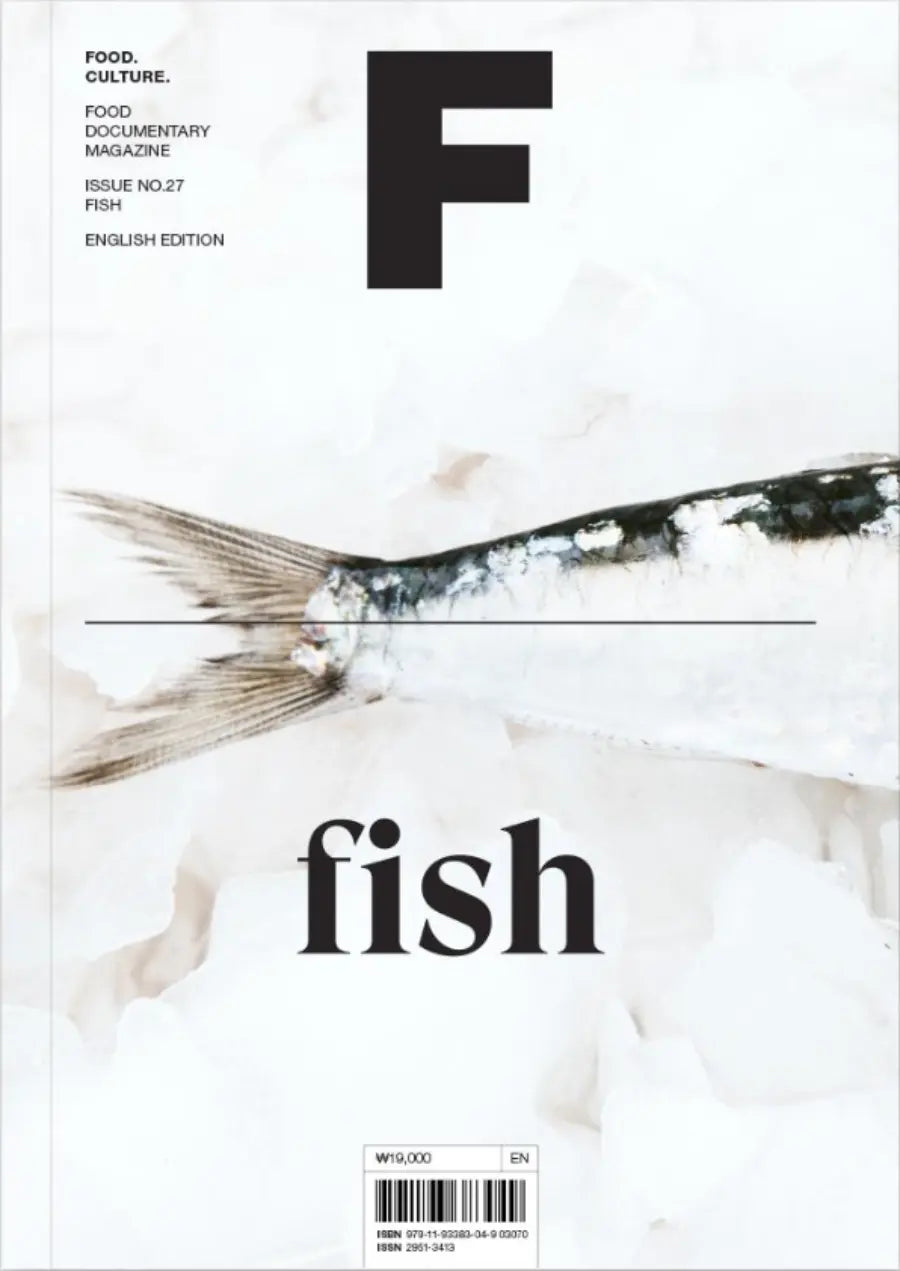-
Shop
- Back
- Shop
- Pre-Order Books
- New Releases
- Vintage Books
- Sale Books
- Children's
- Shop All
- Vintage Menus
- Risographs
- Aprons & Totes
- Moulds
- Gift Cards
- Americas
- Art & Design
- Asia & Oceania
- Europe
- Jewish
- Middle Eastern & African
- Baking & Sweets
- Drinks
- Food Writing
- Gardening & Preserving
- General & Ingredients
- Health
- Professional
- Technique
- Magazine
- Upcoming Events
- About Us
- Cookbook Club
-
Shop
- Pre-Order Books
- New Releases
- Vintage Books
- Sale Books
- Children's
- Shop All
- Vintage Menus
- Risographs
- Aprons & Totes
- Moulds
- Gift Cards
- Americas
- Art & Design
- Asia & Oceania
- Europe
- Jewish
- Middle Eastern & African
- Baking & Sweets
- Drinks
- Food Writing
- Gardening & Preserving
- General & Ingredients
- Health
- Professional
- Technique
- Magazine
- Upcoming Events
- About Us
- Cookbook Club



Magazine F Nº 27: Fish
Fish — one of the original human foods, Fish have taught us to hunt, cooperate, cook and preserve, and now they function as an indicator of ocean, and planet, health.
Fish has been a food source for tens of thousands of years. And well-known saltwater fish—like cod, salmon, tuna, herring, and mackerel—have all played an important role in food culture. In particular, different fish salting traditions can easily be found in coastal regions around the globe. Aside from that, fish is a great source of protein, and humans cooked up myriad fish dishes with unique twists and tweaks according to the characteristics of each region. But around the 2000s, the depletion of fishery resources emerged as an environmental issue, sparking organizations to take the lead in ocean sustainability efforts by creating ethical consumption guides and meal plans that can help protect aquatic ecosystems.
